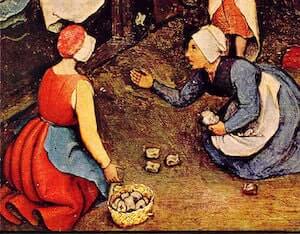The Doobie Brothers started when drummer John Hartman went to California in 1969 hoping to meet Skip Spence of Moby Grape
of Moby Grape . He wanted to join a Moby Grape reunion that never happened.
. He wanted to join a Moby Grape reunion that never happened.
Spence introduced Hartman to singer, guitarist and songwriter Tom Johnston and the two proceeded to form the nucleus of what would become
The Doobie Brothers
. They called that early incarnation "Pud," and had a number of lineups and styles. As a "power trio" with bassist Greg Murphy and later with a horn section, they gigged around San Jose. In 1970 they teamed up with bass player Dave Shogren and singer, guitarist and songwriter Patrick Simmons.
Johnston has said that the Doobie Brothers name can be credited to a friend who thought it served the band's fondness for "doobies" - a slang for marijuana cigarettes.
Since this site is more about name etymologies (and not really a music site), let's take a look at the doobie connection.
Marijuana has always had a good number of nicknames. "Joints" is a common one. "Spliffs" is another that refers to cigarettes rolled with a bit of cardboard or a rolled business card in one end to serve as a mouthpiece. These are also known as a "crutch" or "roach." In North America, "roach" usually means the smoked-down butt of a joint.
Where did "joint" as a marijuana cigarette come from? Ultimately, it's from French where it is an adjective meaning "joined" (past participle of the verb
joindre). And that comes from the Latin
iunctus, the past participle of
iungo meaning "I join."
You might guess it has something to do with joining that spliff filter/mouthpiece, but it seems not.
By 1821, "joint" had become an Anglo-Irish term for an annex, or a side-room that is "joined" to a main room. By 1877, this had developed into U.S. slang for a place, building, or establishment that had a negative or questionable association - like an opium den.
By 1935, "joint" was being used to refer to the hypodermic needles used to inject heroin and other drugs at such establishments.
According to the Online Etymology Dictionary, its first usage in the sense of "marijuana cigarette" is dated to 1938.
Before we get back to the band, let's just say that for our international readers in Europe, some Commonwealth nations and the Middle-East, joints or "spliffs" are rolled by mixing cannabis or hashish with tobacco.
A more modern usage of the past 20 years in North America is the term "blunt" which is rolled using a cigar skin, from which the filler tobacco has been removed, and replaced by marijuana.
The Doobie Brothers played live all over Northern California in 1970 and attracted enough of a following to get a contract at Warner Bros. Records. Their following was not essentially potheads but leather-jacketed motorcycle fans.
But
the band's 1971 self-titled debut album
didn't really play to that audience and featured acoustic guitars and some country influences.
Album two was
Toulouse Street
and had the more rock-oriented hits "Listen to the Music" and a cover of
The Byrds'
recording of
"Jesus Is Just Alright."
With some changes to the rhythm section, their sound became more of a mashup of R&B, country, bluegrass, hard rock, roadhouse boogie, and rock and roll.

They had a string of hits in 1973 including two songs that every bar band covered -
"Long Train Runnin"
and
"China Grove"
from the 1973 album
The Captain and Me
.
Personally, I liked the addition of
Steely Dan
's (see
our post on that band) guitarist Jeff "Skunk" Baxter.
They had their first #1 single with
"Black Water." What Were Once Vices Are Now
What Were Once Vices Are Now Habits was a multi-platinum album. The album also has the horn-driven funk song "Eyes of Silver" and during this period and for several subsequent tours, the Doobies were often supported on-stage by Stax Records legends
The Memphis Horns

The band was under contract to release another album in 1976 and they turned to
Michael McDonald
to add songs to Simmons and Porter's offerings. The resulting album was
Takin' It to the Streets
which marked another change to the sound which pleased some listeners and pissed off some of their original followers.
Their harder guitar-based rock gave way to "blue-eyed soul" and soft rock with keyboards and horns. Baxter and MacDonald had both spent time in Steely Dan and Baxter's playing was more jazz-inflected guitar and McDonald's voice became the voice of the band in this period. His
"Takin' It to the Streets,"
and
"It Keeps You Runnin"
were both hits.
A greatest hits compilation,
Best of the Doobies

, also came out that year and it was certified in 1996 by the RIAA as "Diamond" for sales in excess of ten million. The follow-up was
a volume two of songs.















